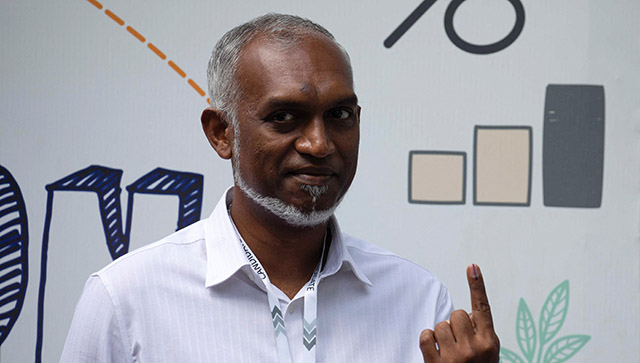Maldivian President-elect Mohamed Muizzu seems determined to stick to the commitment which was among his many campaign promises – his significant stance of having “India Out” advocating for the expulsion of Indian soldiers from the archipelago. Muizzu’s statement on the matter is clear: “Those who have deployed troops here would not want to keep them here if we don’t want it… The people have decided and don’t want Indian troops to stay in the Maldives.” The presence of Indian soldiers in the Maldives, estimated at around 75 troops, has been a topic of interest and speculation in the country. Their primary role is to operate aircraft, including two helicopters and one Dornier aircraft gifted by India to the Maldives. Additionally, Indian troops are involved in constructing a naval harbour, where Maldivian troops will receive training. While parts of this information are publicly available, much remains shrouded in secrecy, leading to speculation and debate. President-elect Muizzu’s primary concern is that India seeks to establish a permanent presence in the Maldives, possibly in the form of a military base or outpost. It’s important to note that although India has denied this allegation, but in the context of Maldivian politics, this issue has become a focal point. The Maldives has seen a significant shift in leadership and foreign policy in recent years. In 2018, former President Abdullah Yameen requested that India end all military presence including soldiers and helicopters. However, Yameen was ousted later that year, and his successor, Ibrahim Solih, adopted a ‘India First’ foreign policy.
With the recent election, Yameen’s party nominated Muizzu as a proxy candidate since Yameen himself was disqualified due to corruption charges. Muizzu, after winning the election, promptly secured Yameen’s release from jail, albeit under house arrest. The question now is whether Yameen will continue to wield influence from behind the scenes. Yameen is a key figure behind the ‘India Out’ campaign, making it both personal and political. Even as Prime Minister Narendra Modi publicly congratulated Muizzu and called for stronger bilateral relations, but privately, India is adopting a cautious approach. However, Mohamed Shareef, Muizzu’s foreign policy advisor, conveyed positive signals. He acknowledged India’s importance in the Indian Ocean, downplayed concerns about China and reaffirmed the Maldives’ commitment to being one of India’s strongest allies. Additionally, Muizzu’s first foreign trip as president will be to India, following a diplomatic tradition among Maldivian presidents. The regime change in Male has emerged as a challenge for both India and Maldives. India cannot abruptly shut the door on the Maldives after investing millions in the country. Parallelly, Maldives cannot overlook India, its largest and most reliable neighbour. However, it’s essential for both sides to exercise political maturity. While campaign rhetoric often differs from policy, there are potential red lines, such as hosting Chinese assets, strategic agreements, joint projects or prioritising visits to China over India. Now as the elections are done and dusted, it’s time for a policy-driven approach. Muizzu, once a vocal campaigner against India, faces the challenge of balancing his campaign promises with the complexities of governing. The future of India-Maldives relations will depend on the decisions and actions of both nations in this evolving landscape. Views expressed in the above piece are personal and solely that of the author. They do not necessarily reflect Firstpost’s views. Read all the Latest News , Trending News , Cricket News , Bollywood News , India News and Entertainment News here. Follow us on Facebook , Twitter and Instagram .
)